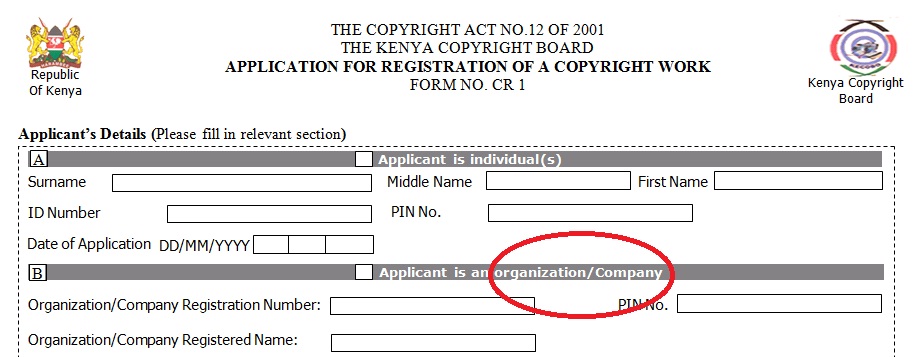QOTD: Corporate Authorship and Duration of Copyright in Kenya
- Victor Nzomo |
- March 28, 2013 |
- Copyright

Today’s Question of the Day (QOTD) is on the duration of copyright where the author of the copyright work is a juristic person.
Authorship is at the core of copyright law. It determines ownership of copyright in the first instance. It provides a defence to alleged infringement. Most importantly, authorship determines the duration of copyright.
Section 2(1) of the Copyright Act defines an “author” in relation to the various categories of copyright works as a “person”
Section 23(2) of the Act states that copyright lasts for 50 years after the death of the author. The duration of copyright is computed from the end of the year in which the author dies for literary, musical and artistic works excluding photographs. The length of copyright protection is measured by reference to the human author’s lifespan.
The cumulative effect of these two sections of the Act would be that the word “person” refers only to a natural person, since the length of copyright protection is measured by reference to the human lifespan.
However, the current practice and procedures for copyright registration in Kenya allow for both natural and juristic persons to be applicants as well as authors for the purposes of copyright registration. Where the application for registration of copyright is successful, the copyright registration certificate issued by the Kenya Copyright Board (KeCoBo) may be in the name of either an individual or a company.
The question then arises, how long does the copyright last where the author is a juristic person and not a natural person?
Given that a juristic person, unlike a natural person, enjoys perpetual succession, does this mean that copyright in works of corporate authorship exist in perpetuity never to expire?
United States copyright law has a notion of corporate authorship. Corporate authorship refers to “company-produced” works, so to speak, where for instance a bunch of employees develop a software or another copyrightable work that is owned by the employer and registered in the name of the employer. For works of corporate authorship in the US, copyright expires 120 years after creation or 95 years after publication, whichever is earlier.
Meanwhile here in Kenya, this blogger is still wondering what is the date of expiry of copyright in cases of corporate authorship. In the absence of any legal or policy guidelines, this blogger is inclined to believe that the expiry of copyright in works of corporate authorship in Kenya must be guided by the provisions of section 23(3) of the Act, therefore such works would be considered as anonymous or pseudonymous works whose copyright expires fifty years from the end of the year in which the work was first published.
Over to you, esteemed readers, what are your thoughts on today’s QOTD?

Caroline W. Muchiri (@Karolainnem)
victor (@vcnzm)
Perpetua N. Mwangi